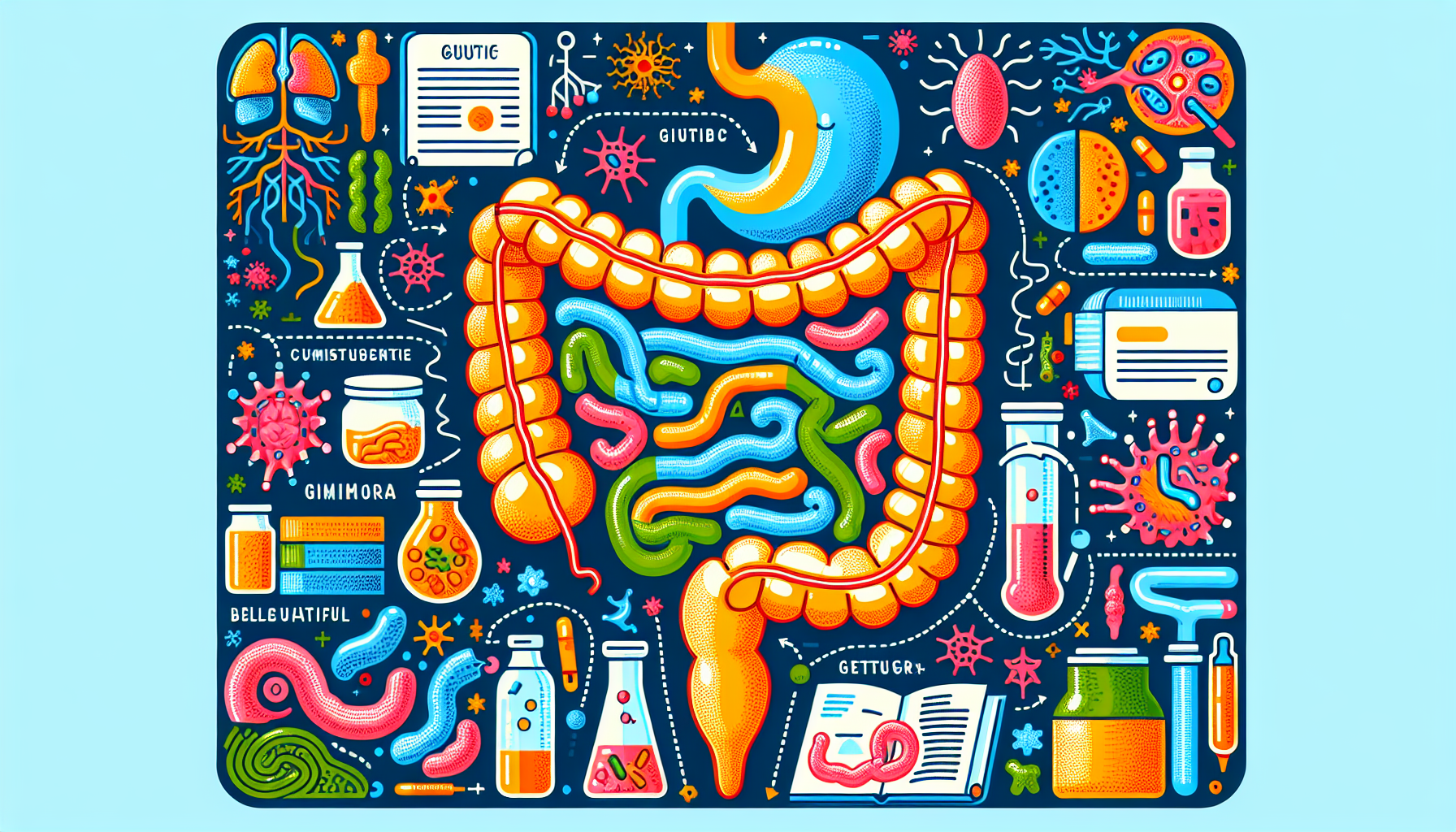The state of our gastrointestinal (GI) health is a cornerstone of overall well-being, intricately linked to the prevention and management of chronic diseases. The gastrointestinal tract is not only responsible for the digestion and absorption of nutrients but also plays a pivotal role in our immune system, mental health, and the prevention of various chronic conditions.
The Gut-Health Connection
Our GI tract is home to trillions of microbes, collectively known as the gut microbiome. This complex ecosystem comprises bacteria, viruses, fungi, and other microscopic organisms that interact with our body in profound ways. A balanced gut microbiome supports efficient nutrient absorption, immune function, and protects against pathogens. Conversely, an imbalanced microbiome – known as dysbiosis – can contribute to inflammation and a host of chronic diseases.
Nutrient Absorption and Chronic Disease
Proper nutrient absorption is fundamental to maintaining good health and preventing disease. Nutrients from our diet support the body’s cellular repair, immune response, and energy production. When the gastrointestinal system is compromised, it can lead to malabsorption of critical nutrients, which is associated with conditions like osteoporosis, anemia, and vitamin deficiencies. To understand the importance of nutrient uptake in maintaining bone health, consider exploring Avix Health’s comprehensive guide on bone health.
Immune Regulation and Inflammation
The gastrointestinal tract is also an immune organ. A significant portion of the immune system is located in the gut, where it communicates with the microbiota to maintain balance and ward off external threats. This interaction helps in modulating inflammation, a natural immune response that, when chronic, is at the heart of many diseases such as heart disease, diabetes, and autoimmune disorders. The influence of dietary antioxidants on gut health is especially crucial in managing inflammation.
The Gut-Brain Axis
The gut-brain axis refers to the two-way communication between the GI system and the central nervous system. This connection means that our gastrointestinal health can influence mental health and vice versa. For instance, gut dysbiosis has been linked to conditions such as depression and anxiety. Understanding this intricate relationship is vital in addressing chronic mental health issues, as discussed in Assessing the Health of the Gut-Brain Axis.
Strategies for Maintaining a Healthy GI Tract
Diet and Prebiotics
A diet rich in fiber, particularly prebiotics, supports the growth of beneficial bacteria in the gut. Prebiotics are found in foods such as garlic, onions, leeks, asparagus, bananas, and whole grains. A diverse diet can lead to a diverse microbiome, which is associated with better health outcomes. To delve deeper into the significance of these nutrients, The Importance of Prebiotic Foods in Gut Health provides further insights.
Probiotics and Fermented Foods
Probiotics are live bacteria found in fermented foods like yogurt, kefir, sauerkraut, and kimchi, or in supplements. They can help restore the natural balance of the gut microbiome, especially after disruptions such as antibiotic treatment. The benefits of probiotic therapy are continuously being researched, with promising results in the management of digestive disorders highlighted in Advances in Probiotic Therapy for Digestive Disorders.
Stress Management
Chronic stress can negatively affect gut health by altering the microbiome and increasing intestinal permeability, often referred to as leaky gut. This can contribute to inflammation and further exacerbate chronic health conditions. Techniques such as mindfulness, meditation, and regular exercise are effective for stress management and, by extension, for maintaining GI health.
Avoiding Negative Influences
Certain lifestyle choices can harm the gut microbiome. Excessive alcohol consumption, a diet high in processed foods, and the overuse of antibiotics can all lead to an imbalance of gut bacteria. Moderation and mindful medication use are key to preserving gut integrity.
The Impact of a Healthy Gut on Chronic Disease Prevention
Prevention of Autoimmune Diseases
A healthy gut barrier prevents unwanted substances from entering the bloodstream and triggering an immune response. When this barrier is compromised, it can lead to autoimmune conditions, where the body mistakenly attacks its tissues. The link between gut health and these diseases is elaborated on in The Link Between Gut Health and Autoimmune Diseases.
Cardiovascular Health
Emerging research suggests that certain gut bacteria can influence the risk of heart disease by affecting the levels of cholesterol and other blood lipids. A healthy gut microbiome is also associated with lower blood pressure and reduced inflammation, both of which are beneficial for cardiovascular health. For more detailed information, the relationship between gut health and heart health can be explored at Avix Health’s cardiovascular health resource.
Obesity and Metabolic Health
There is a growing body of evidence linking the gut microbiota with obesity and metabolic diseases like type 2 diabetes. Certain gut bacteria profiles can affect how we store fat, balance glucose levels, and how we respond to hormones that make us feel hungry or full. Strategies to modulate the gut microbiome could become integral to managing these conditions.
Cancer Prevention
The gut microbiome may also influence the development of certain types of cancer, particularly those in the digestive system. Some bacteria have been shown to have protective effects, while others may contribute to cancer risk by causing DNA damage or inflammation. The role of the microbiome in digestive cancer prevention is a promising field of research, as discussed in The Role of Microbiome in Digestive Cancer Prevention.
In conclusion, the health of our gastrointestinal system is deeply entwined with our overall health and our ability to fend off chronic diseases. By understanding and nurturing our gut health through diet, lifestyle choices, and stress management, we can support our body’s natural defenses and promote long-term well-being. For anyone seeking to improve their health, the journey could very well begin within the gut.



